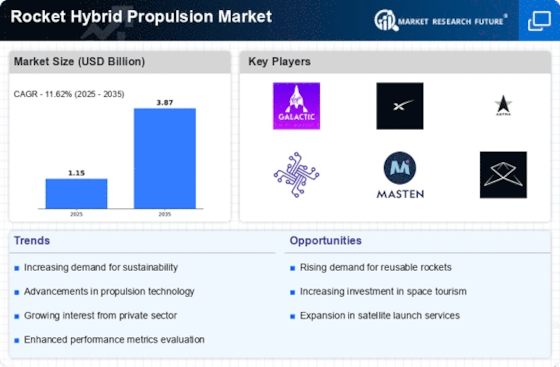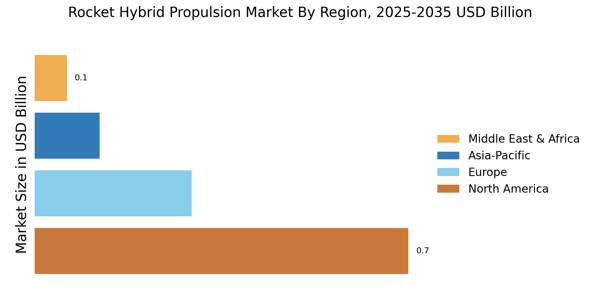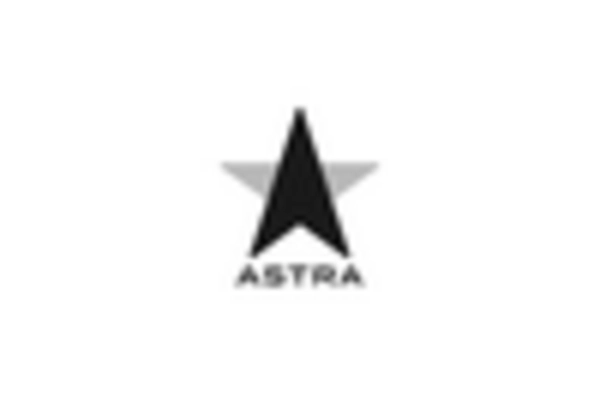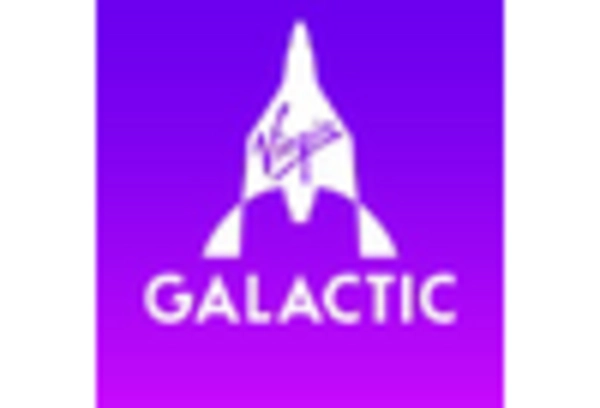Increased Demand for Launch Services
The Rocket Hybrid Propulsion Market is witnessing an increased demand for launch services, driven by the proliferation of small satellites and the need for reliable access to space. As more entities, including startups and established companies, seek to deploy satellites for communication, Earth observation, and scientific research, the demand for efficient and cost-effective launch solutions is rising. Hybrid propulsion systems, known for their adaptability and performance, are becoming a preferred choice for many launch providers. By 2025, the market for launch services is expected to expand significantly, with hybrid propulsion playing a crucial role in meeting the growing needs of the space industry.
Commercial Space Exploration Initiatives
The Rocket Hybrid Propulsion Market is significantly bolstered by the rise of commercial space exploration initiatives. Private companies are increasingly investing in hybrid propulsion technologies to support a variety of missions, including satellite deployment, space tourism, and interplanetary exploration. The market is projected to reach a valuation of several billion dollars by 2025, as more players enter the field and competition intensifies. Notably, hybrid propulsion systems are favored for their versatility and cost-effectiveness, making them suitable for a range of applications. This trend is likely to continue, as partnerships between private firms and governmental space agencies foster innovation and drive demand for hybrid propulsion solutions.
Government Investments in Space Technology
The Rocket Hybrid Propulsion Market is benefiting from substantial government investments in space technology. Various nations are recognizing the strategic importance of space exploration and are allocating significant budgets to develop advanced propulsion systems. These investments are not only aimed at enhancing national security but also at fostering technological innovation and economic growth. By 2025, it is anticipated that government funding for hybrid propulsion research and development will increase, leading to breakthroughs that could redefine propulsion capabilities. This financial support is likely to stimulate collaboration between public and private sectors, further accelerating advancements in the Rocket Hybrid Propulsion Market.
Sustainability Focus in Rocket Hybrid Propulsion
The Rocket Hybrid Propulsion Market is increasingly influenced by a growing emphasis on sustainability. As environmental concerns rise, stakeholders are seeking propulsion solutions that minimize carbon footprints and reduce harmful emissions. Hybrid propulsion systems, which utilize a combination of solid and liquid fuels, offer a more environmentally friendly alternative compared to traditional rocket engines. The market is witnessing a shift towards biofuels and other renewable energy sources, which could potentially lower the ecological impact of space launches. By 2025, it is estimated that the adoption of sustainable practices in propulsion technology could account for a significant portion of the market, appealing to both commercial enterprises and governmental agencies committed to environmental stewardship.
Technological Advancements in Rocket Hybrid Propulsion
The Rocket Hybrid Propulsion Market is experiencing a surge in technological advancements that enhance propulsion efficiency and reliability. Innovations in materials, such as lightweight composites and advanced propellant formulations, are being developed to improve performance metrics. For instance, the integration of computer-aided design and simulation tools allows for more precise modeling of hybrid engines, leading to optimized thrust-to-weight ratios. As of 2025, the market is projected to grow at a compound annual growth rate of approximately 12%, driven by these technological improvements. Furthermore, advancements in control systems and ignition technologies are likely to reduce operational risks, making hybrid propulsion systems more appealing for both commercial and governmental space missions.


















